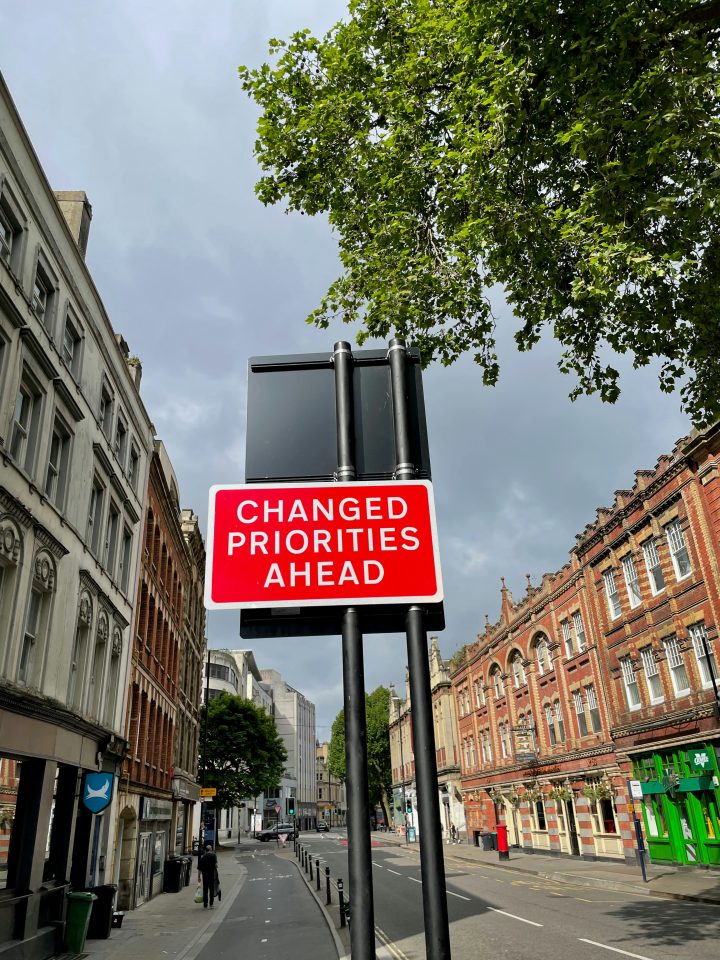Have you ever thought that, at the latest, you opened up to constant public evaluation when you took that leadership role? Everything you do or don’t do, say or don’t say, is scrutinized. And the real test around the feedback lies in how well you can detach from the emotional weight of feedback and focus on its core message. You quickly learn that you can’t please everyone and your maturity as a leader isn’t measured by the feedback you receive but by how well you turn it into action and growth. I wish I had understood that sooner!
Feedback: Deserved or Not, It’s Still Valuable
Leadership is not about maintaining universal approval; it’s about evolving and improving based on the insights you gain, no matter how hard they are to hear. I’ve learned that the ability to transform feedback, whether praise or criticism, into meaningful improvements separates good leaders from exceptional ones. It’s not about being perfect but about being open, adaptable, and relentlessly pursuing being better.
Whether or not the leader feels they deserve the feedback is irrelevant in the grander growth scheme. Even how the feedback is given won’t matter in the big picture. It might sound brutal and inhuman, but the leader should understand that the perception of their team often holds more weight than their personal opinions of fairness. Even if the feedback seems unjust or misplaced, it provides insight into how others are experiencing their leadership. By addressing the concerns raised, regardless of personal feelings, the leader demonstrates emotional intelligence and a commitment to improvement. This is also where your personal trusted advisors and mentors come in place. Every leader needs their own safe space to vent and spit out their thoughts on how dirty and unpolished those might be.
Turning Criticism Into Fuel
Leadership is not a static trait; it is a constantly evolving practice. One key measure of leadership maturity is transforming bad feedback into actionable improvements. If you let the feedback under your skin, you have a harder time digging it out of there! How leaders handle criticism directly impacts their growth, effectiveness, and long-term success. Dwelling on negative feedback is an energy drain and increases your mental workload significantly, so whatever it takes, learn to deal with it as fast as you can. Instead of defensiveness, leaders with a mature enough mindset see feedback—predominantly negative—as a tool for self-improvement and a valuable window into their leadership style or behavior. Sometimes it’s super hard, I know.
Crushing Feedback? Growth Isn’t Your First Thought
The moment you get that crushing feedback you absolutely didn’t think you deserve, the growth opportunity is not necessarily the first thing on your mind. That’s definitely been one of the most challenging lessons for me. With my temper, I’ve had to work hard at biting my tongue and resisting the urge to fire back with a clever comeback—often forgetting actually to listen in the process.
At least in theory and ballroom speeches, every leader understands that constructive or critical feedback is essential for growth and is always worth listening to. And also understands the fact that no leader is infallible. Recognizing the limitations or blind spots in their leadership style requires humility and openness. But when the moment comes, and a leader receives negative feedback, the immediate instinct may be to resist or justify their actions. However, the more mature the leader has, the urge to snap back changes to pausing, reflecting, and reframing the feedback as an opportunity for growth.
The Steps to Meaningful Leadership Growth
Turning this negative feedback into something actionable requires:
- Active Listening: Patience, my friend. Listen carefully to your feedback! The underlying message may often reveal more profound truths about the leader’s behavior, decision-making, or communication style. By paying attention to what is being said (and sometimes what is left unsaid), a leader can begin the process of meaningful reflection.
- Self-Reflection: Once you receive feedback, you should take time to reflect on it. Call your mentor or advisor if it hits hard, but don’t start bathing in it. Try to ask: Where could this be true in my leadership? What patterns or tendencies are being highlighted?
- Actionable Steps for Improvement: Sleep for a few nights before deciding anything. The ultimate goal of feedback is to drive improvement, not to crush you. Find your way from reflection to action. This means identifying specific behaviors or strategies that need to change and implementing them.
Building Resilience Through Constructive Criticism
Regardless of your years on the road, bad feedback is easy to take as a personal attack. However, leadership maturity is measured by how well a leader can emotionally regulate in the face of criticism. Instead of reacting impulsively, the leader should practice resilience, even when their temper urges them to do the opposite. You just need to understand that setbacks and missteps are part of leadership and that criticism, even when challenging to hear, is necessary for improvement.
In the middle of all the feel-bad moments, there’s still another thing to remember: your actions will always be seen as an example. You would want to be a leader who fosters a culture where feedback is welcomed, encouraging your teams to provide honest insights without fear of retribution. When team members see that their feedback is valued and acted upon, they are more likely to communicate openly, leading to stronger collaboration and trust.
Adapting Leadership Style Based on Feedback
No leadership style is one-size-fits-all. A leader’s ability to adapt and evolve their style based on the needs of the team or organization is essential. When feedback highlights that a particular approach is ineffective, the mature leader doesn’t cling to outdated methods. Instead, they pivot, adjust, and evolve to better serve their team.
You’ve got this!
In the end, having a leadership role isn’t that bad. There are usually more nice days than days when you feel horrible. In essence, you just need to remember that leadership is not about being a perfect superhero leader—it’s more like a never-ending game of “How Can I Screw This Up Today?” Embracing and acting on feedback, even the kind that feels like a personal roast, truly sharpens your leadership skills. So, take that feedback with that grain of salt, listen, and let every critique guide you to becoming the leader you’re not-so-secretly hoping to be. After all, leadership is about rolling with the punches, learning from them, and still showing up ready for the next round!



